This article was co-authored by Lisa Bryant, ND and by wikiHow staff writer, Danielle Blinka, MA, MPA. Dr. Lisa Bryant is Licensed Naturopathic Physician and natural medicine expert based in Portland, Oregon. She earned a Doctorate of Naturopathic Medicine from the National College of Natural Medicine in Portland, Oregon and completed her residency in Naturopathic Family Medicine there in 2014.
There are 10 references cited in this article, which can be found at the bottom of the page.
This article has been viewed 41,488 times.
Symptoms like a sore, scratchy throat, hoarse voice, and heartburn might be signs of esophageal damage. Your esophageal sphincter is a muscular ring that prevents stomach acid and food from flowing out of your stomach and into your esophagus. If it doesn’t close all the way, you’ll experience acid reflux and heartburn, which damages your esophagus. You might be able to heal your esophagus by changing your diet, making lifestyle changes, and using home treatments. However, check with your doctor before using natural treatments. Additionally, see your doctor to confirm the cause of your esophageal damage so you know you’re getting the right treatment.
Steps
Changing Your Diet
-
1Eat 6 small meals a day so your stomach doesn’t get too full. If your stomach is too full, the food might flow out of your stomach and into your esophagus. This can further damage your esophagus. To help your esophagus heal, shrink the size of your meals. Rather than eating 3 big meals, eat 6 snack-size meals about every 2-3 hours.[1]
- Smaller meals are less likely to cause acid reflux. This gives your esophagus time to heal.
-
2Eliminate your trigger foods from your diet. Keep a food diary to figure out which foods trigger your acid reflux. Then, cut these foods from your diet. This might reduce your acid reflux so your esophagus can heal. Common triggers include the following:[2]
- Caffeine
- Spicy foods
- Fatty foods
- Mint-flavored foods
- Chocolate
- Tomatoes
- Citrus
- Onions
- Garlic
- Coffee
- Tea
- Soda
Advertisement -
3Eat a high fiber diet so stomach empties faster. Fiber improves your digestive process, so a high fiber diet may help you manage your stomach acid production. Make sure you eat enough fiber to meet your daily dietary recommendations.[3] Consume at least 25 g of fiber daily if you’re a woman or 38 g of fiber daily if you’re a man.[4]
- High fiber foods include vegetables, fruits, nuts, seeds, beans, legumes, and whole grains. For example, you could include a daily serving of sunflower seeds, pumpkin seeds, chia seeds, flax seed, or almonds to boost your fiber intake.
Tip: If you don’t consume a lot of high fiber foods, an over-the-counter fiber supplement may help you reach your fiber goals. Talk to your doctor to find out if a fiber supplement is right for you.
-
4Consume more probiotics to help your stomach digest food faster. Probiotics support healthy gut bacteria, which supports a healthy digestive system. To increase your probiotics, eat yogurt with live active cultures and fermented foods, such as kimchi, sauerkraut, miso, tempeh, and kombucha. This might reduce your incidence of acid reflux.[5]
- You can also find over-the-counter probiotic supplements. Check with your doctor to find out if they’re right for you.
-
5Stop drinking alcohol because it may cause acid reflux. Alcohol relaxes your esophageal sphincter, which is a muscular ring that closes your esophagus. Normally, your esophageal sphincter prevents your stomach contents from rising up into your esophagus. Since alcohol relaxes your sphincter, it may trigger acid reflux. Eliminate alcohol from your diet to allow your esophagus to heal.[6]
- If you don’t want to stop drinking, you might limit yourself to 1 drink a day. Additionally, don’t drink within 2 hours before bed because your stomach acid may flow up while you’re sleeping.
Making Lifestyle Changes
-
1Maintain a healthy weight to reduce your risk for acid reflux. When you’re carrying excess body weight, it may apply pressure to your esophageal sphincter. This may open your esophageal sphincter, allowing your stomach acid to escape and damage your esophagus. Talk to your doctor to find out your optimal target weight. Then, change your diet and increase your activity to help you reach and maintain your healthy weight.[7]
- Don’t assume you need to lose weight without talking to your doctor. Similarly, don’t make diet or exercise changes without checking with your doctor to make sure they’re safe for you.
-
2Take pills with a full glass of water so they don’t lodge in your throat. Pills may get stuck in your throat, which can irritate your esophagus. To prevent this, drink a full glass of water every time you take a pill to wash it down. This might protect your esophagus.[8]
- If you’re taking more than 1 pill, swallow them 1 at a time to make it easier for them to go down. However, you don’t need to drink more than 1 full glass of water.
-
3Stop eating 3 hours before you go to bed. After you eat, it takes a few hours for your body to digest your food. If you lie down during this time, your stomach contents and stomach acid may flow up into your esophagus. Avoid eating late night meals and snacks so you don’t go to bed on a full stomach.[9]
- It also helps to prop yourself up on pillows or elevate the head of your bed so that your food and stomach acid flow downwards. This may prevent it from damaging your esophagus.
-
4Wait 2-3 hours after a meal to engage in vigorous exercise. While it’s okay to take a walk after you eat, intense exercise may push stomach acid up into your esophagus. To prevent further esophageal damage, allow your food to digest for at least 2-3 hours before you work out. This may help you avoid acid reflux so your esophagus can heal.[10]
- For instance, you might exercise 2 hours after your afternoon meal, just before dinner. Similarly, you might work out in the morning before you eat breakfast.
-
5Chew gum to increase saliva production, which neutralizes acid. When you chew gum, your mouth naturally produces more saliva. Because saliva neutralizes stomach acid, chewing gum may help your esophagus heal. Chew a piece of gum after a meal or when you’re experiencing heartburn.[11]
- Since minty flavors might trigger acid production, pick flavors other than mint.
-
6Quit smoking to avoid drying out your esophagus. You probably already know that smoking harms your health, but cigarette smoke dries out your esophagus and damages your blood vessels. Smoking also relaxes your esophageal sphincter, which allows your stomach acid to flow up into your esophagus. Quitting is extremely difficult, so talk to your doctor about quitting aids to help you cut out cigarettes for good.[12]
- Your doctor may prescribe you patches, lozenges, gum, acupuncture, and prescription medication to help you quit.
Using Home Treatments
-
1Take an herbal acid reflux remedy if your doctor says it’s okay. Herbal treatments for acid reflux include licorice, chamomile, slippery elm, and marshmallow. Purchase capsules or tablets from your local drug store, a health food store, or online. After checking with your doctor, use your herbal treatment as directed on the label.[13]
- Don’t take an herbal remedy without talking to your doctor, as they can interfere with certain medications. Additionally, ask your doctor to recommend the proper dosage for you.
- Be aware that licorice can raise blood pressure if taken in high doses over the long-term. If you do decide to try licorice, opt for a supplement labeled as deglycyrrhizinated, also known as DGL, such as rhizinate chewable DGL.
-
2Use relaxation techniques to help prevent acid reflux. Unfortunately, stress may trigger acid reflux, so it’s important to manage your stress levels. To help you keep stress in check, incorporate stress relievers into your daily. Here are some relaxation techniques to try:[14]
- Meditate for at least 10 minutes.
- Perform progressive muscle relaxation.
- Try guided imagery meditation.
- Write in a journal.
- Talk to a friend about your problems.
-
3Try acupuncture to possibly get heartburn relief. While there’s little evidence that it works, you might get heartburn relief from acupuncture. During acupuncture, a licenced acupuncturist inserts tiny needles into your skin to provide a health benefit, such as reduced acid reflux. This may allow your esophagus to heal. Talk to an acupuncturist to find out if the treatment might help you.[15]
- Some people find that acupuncture improves their heartburn, but it doesn’t work the same way for everyone.
- Acupuncture typically isn’t painful but you might experience some discomfort.
- It’s best to check with your doctor before getting acupuncture.
-
4Use over-the-counter antacids to control stomach acid. You might be able to decrease stomach acid damage by taking antacids that are available in drug stores. Antacids neutralize stomach acid so it can’t trigger heartburn. Read the label and take your antacids as directed. Use them as needed to relieve your heartburn.[16]
- Check with your doctor before using antacids.
When to Seek Medical Care
-
1Check with your doctor before trying natural treatments. While natural treatments are generally safe, they aren’t right for everyone. They may worsen certain medical conditions and may interact with certain treatments. Talk to your doctor to find out if natural treatments are right for you.[17]
- Tell your doctor that you’re hoping to heal your esophagus. They may have natural treatment options they can recommend.
-
2Get an official diagnosis for your underlying condition. There are several different causes for esophageal damage, so it’s important to get a proper diagnosis. The correct treatment for you depends on what’s damaging your esophagus.[18] Visit your doctor to get a barium X-ray, endoscopy, and lab tests on tissues collected from your esophagus. Then, talk to them about your diagnosis and treatment plan.[19]
- During a barium X-ray, your doctor will have you drink a barium compound that will show up on an X-ray. Then, they’ll take a series of X-rays to see your esophagus and look for issues. This text is totally painless.
- For an endoscopy, your doctor will insert a tiny camera and light down your throat. You might be partially sedated during the test so you’re comfortable. They might collect tissue samples during this test.
-
3Ask your doctor if medications may be damaging your esophagus. Some medications may irritate your esophagus and prevent it from healing. Don’t stop taking any medications without checking with your doctor. However, ask your doctor if you might be able to try a different treatment. Here are some medications that might irritate your esophagus:[20]
- Anti-inflammatory painkillers
- Tricyclic antidepressants
- Postmenopausal estrogen
- Alendronate (Fosamax)
- Ibandronate (Boniva)
- Risedronate (Actonel)
Expert Q&A
-
QuestionHow do I help ease pain in my throat and esophagus?
 Ritu Thakur, MARitu Thakur is a healthcare consultant in Delhi, India, with over 10 years of experience in Ayurveda, Naturopathy, Yoga, and Holistic Care. She received her Bachelor Degree in Medicine (BAMS) in 2009 from BU University, Bhopal followed by her Master's in Health Care in 2011 from Apollo Institute of Health Care Management, Hyderabad.
Ritu Thakur, MARitu Thakur is a healthcare consultant in Delhi, India, with over 10 years of experience in Ayurveda, Naturopathy, Yoga, and Holistic Care. She received her Bachelor Degree in Medicine (BAMS) in 2009 from BU University, Bhopal followed by her Master's in Health Care in 2011 from Apollo Institute of Health Care Management, Hyderabad.
Natural Health Care Professional Make a drink with turmeric, cinnamon, and ginger and sip it like soup. That can help get rid of pain and infection in your throat.
Make a drink with turmeric, cinnamon, and ginger and sip it like soup. That can help get rid of pain and infection in your throat.
Warnings
- Don’t treat yourself before you know the cause of your esophageal damage. Get a proper diagnosis from your doctor to make sure you’re getting the correct treatment.⧼thumbs_response⧽
References
- ↑ https://www.health.harvard.edu/digestive-health/9-ways-to-relieve-acid-reflux-without-medication
- ↑ https://www.health.harvard.edu/digestive-health/9-ways-to-relieve-acid-reflux-without-medication
- ↑ https://www.ncbi.nlm.nih.gov/pmc/articles/PMC5989243/
- ↑ https://www.mayoclinic.org/healthy-lifestyle/nutrition-and-healthy-eating/in-depth/fiber/art-20043983
- ↑ https://www.ncbi.nlm.nih.gov/pmc/articles/PMC6506578/
- ↑ https://www.ncbi.nlm.nih.gov/pmc/articles/PMC2880354/
- ↑ https://www.mayoclinic.org/diseases-conditions/esophagitis/diagnosis-treatment/drc-20361264
- ↑ https://www.mayoclinic.org/diseases-conditions/esophagitis/diagnosis-treatment/drc-20361264
- ↑ https://www.mayoclinic.org/diseases-conditions/esophagitis/diagnosis-treatment/drc-20361264
- ↑ https://www.health.harvard.edu/digestive-health/9-ways-to-relieve-acid-reflux-without-medication
- ↑ https://www.aboutgerd.org/diet-lifestyle-changes/diet-changes-for-gerd.html
- ↑ https://www.ncbi.nlm.nih.gov/pmc/articles/PMC1378332/
- ↑ https://www.mayoclinic.org/diseases-conditions/esophagitis/diagnosis-treatment/drc-20361264
- ↑ https://www.mayoclinic.org/diseases-conditions/esophagitis/diagnosis-treatment/drc-20361264
- ↑ https://www.mayoclinic.org/diseases-conditions/esophagitis/diagnosis-treatment/drc-20361264
- ↑ https://www.mayoclinic.org/diseases-conditions/esophagitis/diagnosis-treatment/drc-20361264
- ↑ https://www.hopkinsmedicine.org/health/wellness-and-prevention/herbal-medicine
- ↑ https://www.mayoclinic.org/diseases-conditions/esophagitis/symptoms-causes/syc-20361224
- ↑ https://www.mayoclinic.org/diseases-conditions/esophagitis/diagnosis-treatment/drc-20361264
- ↑ https://www.health.harvard.edu/digestive-health/9-ways-to-relieve-acid-reflux-without-medication
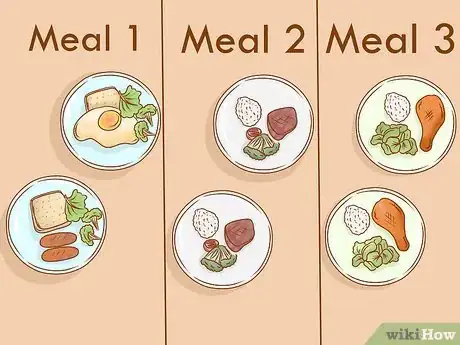
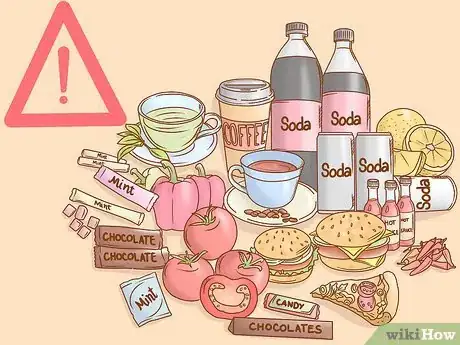
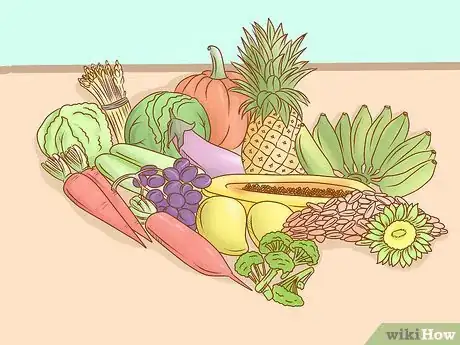
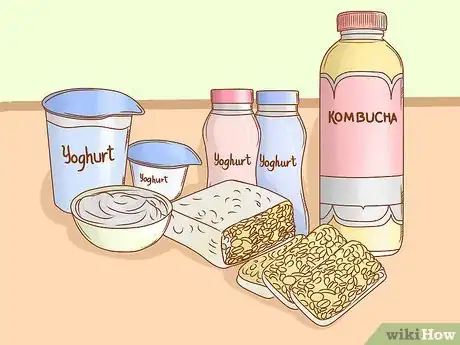
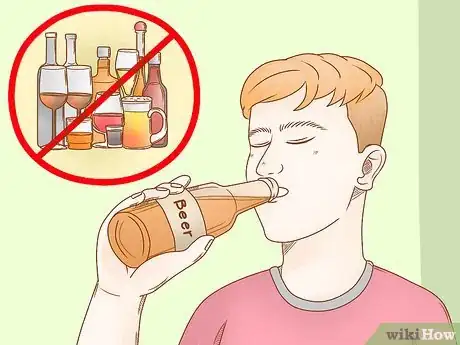
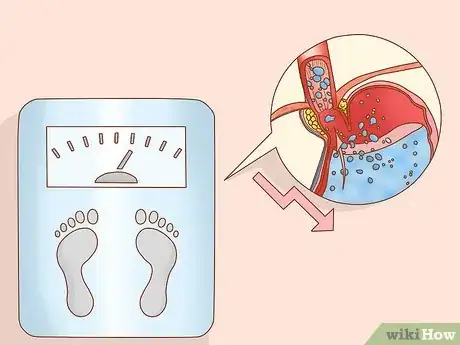
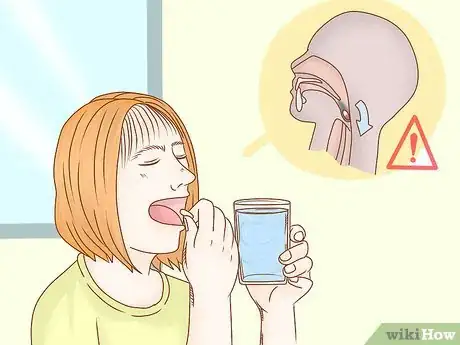
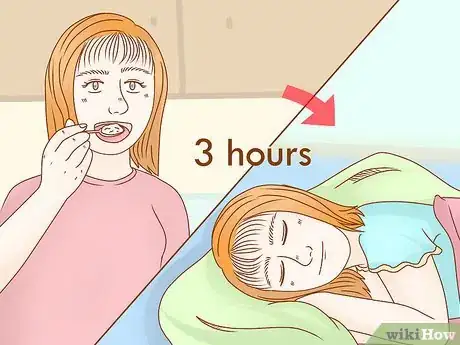
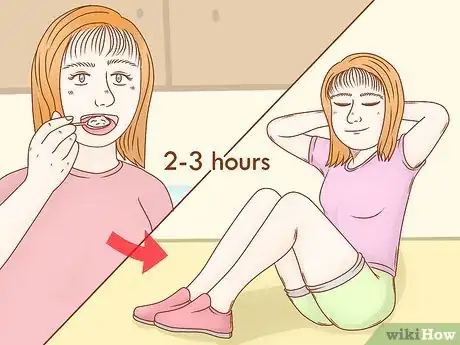

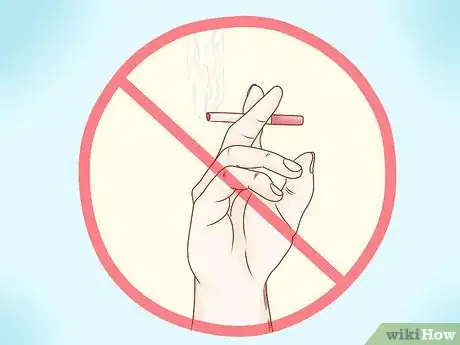
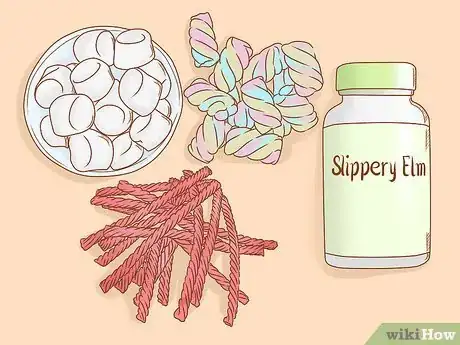
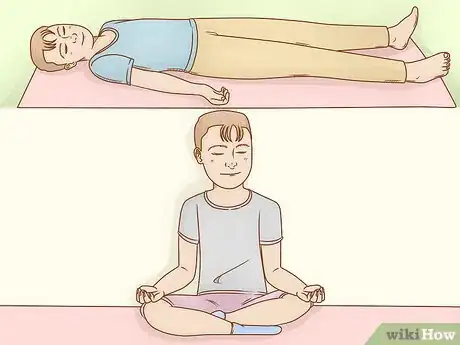
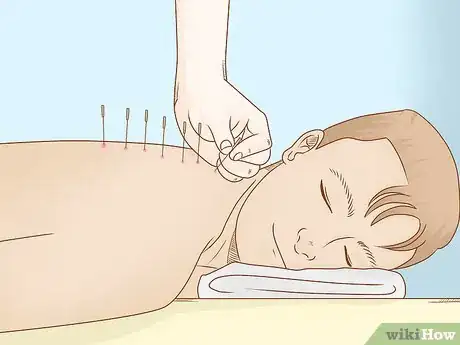
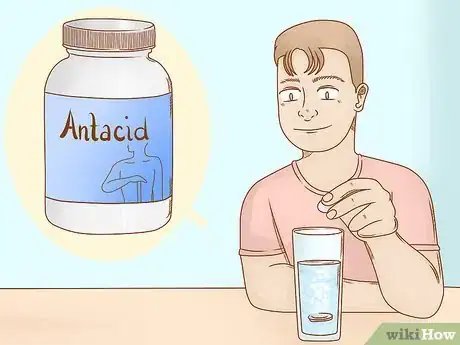
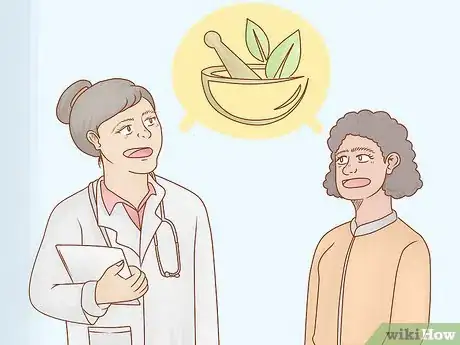
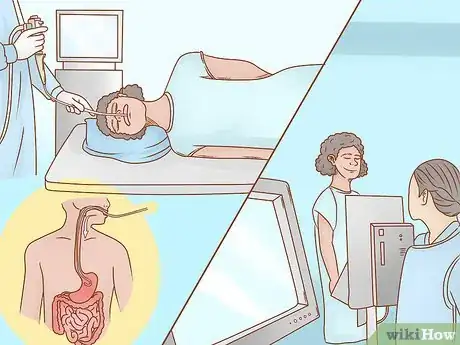
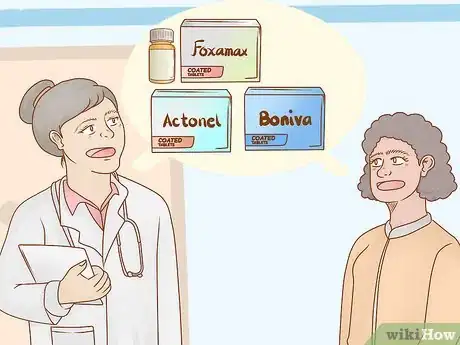
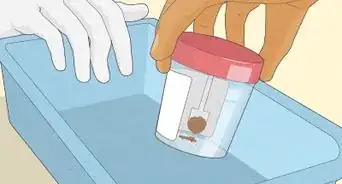
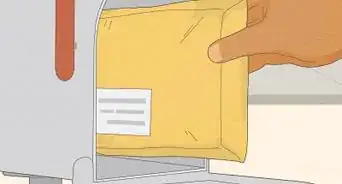

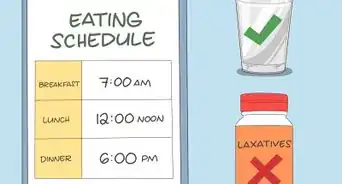
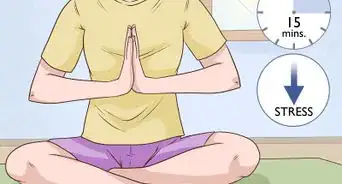
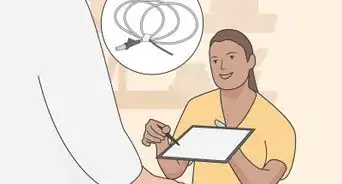
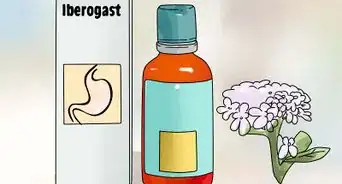
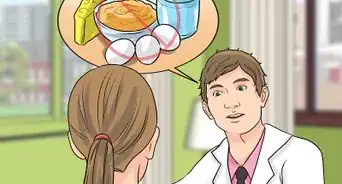
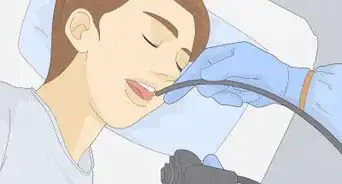
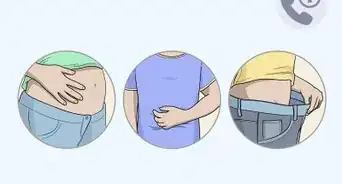

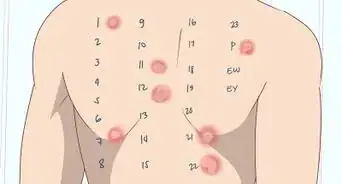









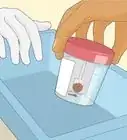
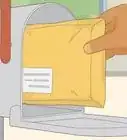
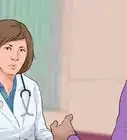
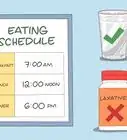



































Medical Disclaimer
The content of this article is not intended to be a substitute for professional medical advice, examination, diagnosis, or treatment. You should always contact your doctor or other qualified healthcare professional before starting, changing, or stopping any kind of health treatment.
Read More...